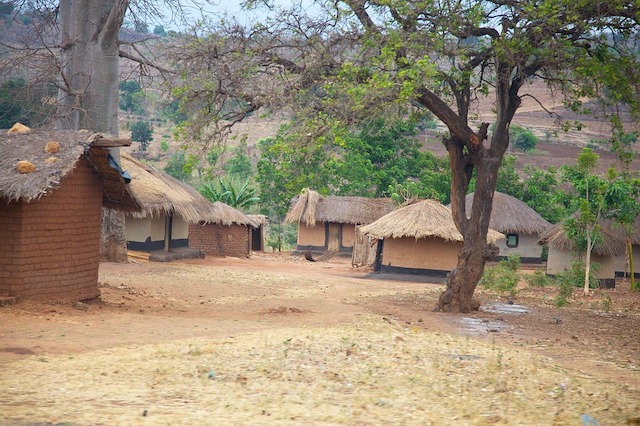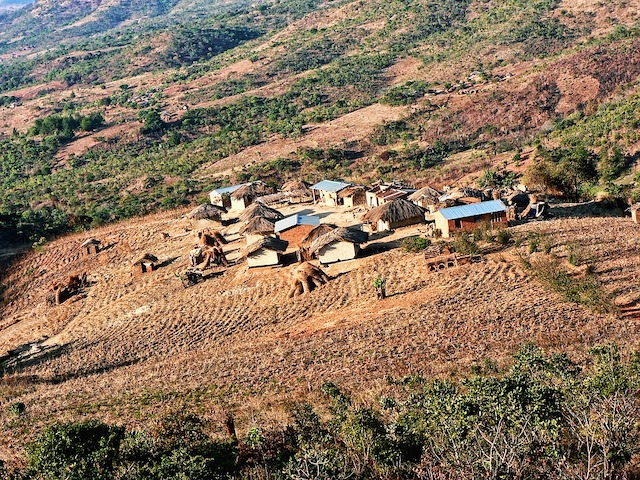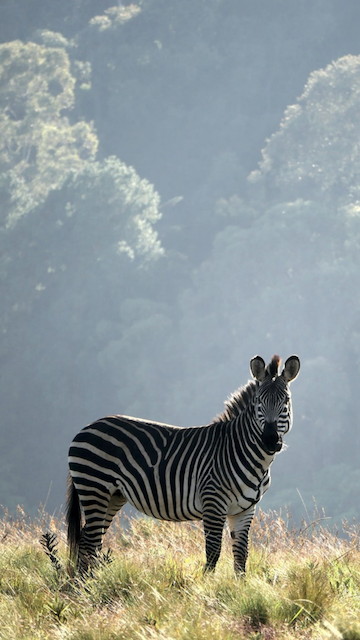Find everything women travelers in Malawi need to know about health, romance, women’s rights and safety.
All the information below is provided by Pink Pangea community members based on their experiences abroad. Get involved and add your voice now!
Health
Feminine Hygienic Products
Shambhavi says: Sanitary pads and tampons are available in most super markets and pharmacies. Most international brands are available and a few local brands are as well.
Jess says: Pads are typically available even at small shops. Tampons are available at shops owned by foreigners -Indians, primarily- and at shops targeted to tourists or ex-pats.
Birth Control
Shambhavi says: Condoms are available in international pharmacies and local brands in most pharmacies. Oral contraceptives are not so popular and may be available in pharmacies.
Jess says: Condoms are widely available. The morning after pill is available, but potentially unreliable and hard to access. I didn’t encounter birth control pills.
Recommended Gynecologists and Doctors
Shambhavi says: I wouldn’t vouch for the medical facilities here. There are not many specialist doctors in the country and even if there are, people prefer to visit South Africa, India, or the UK for major treatments.
Romance
Dating Locals
Jess says: It’s relatively normal for Malawian men, especially in tourist areas, to date foreign women. Most will act rather “Westernized,” and will hope to accompany you to your home country one day. You can’t be sure about fidelity -cheating is commonplace- and you can’t be sure about intentions: expectations of a relationship may differ.
Malawian women do not frequently date foreign men. However, they do sleep with foreign men, typically in exchange for something like food, money, or clothing. Malawian women hanging out in foreign bars are assumed to be sex workers.

Tips for Women Travelers in Malawi
Men
Jess says: Two main types include…
1. Rasta – there is a big “rasta” movement in Malawi. I doubt that many of the “rastas” that you meet are actually following the religion, and are just smoking a lot of dope.
2. Western educated (or pretending) – these Malawians speak with a soft British accent even if they’ve never left Malawi. Usually their goal is to move overseas.
LGBTQ Friendly
Shambhavi says: Malawi is a very liberal country. However, I’m not acquainted with any homosexuals here and homosexuality seems unwelcome.
Jess says: Not particularly in the villages, though they won’t ask as long as you don’t flaunt it. In Lilongwe and Blantyre, there are gay rights groups. But it’s still not commonplace.
Women's Rights
Women’s Rights
Shambhavi says: Women are in top-ranking positions in the government, civil services, police, and business. Also, a lot of entrepreneurs run businesses. Women are welcome to work. I myself have a lot of local women who work on my team and my business associations with banks have introduced me to lots of women working in senior positions.
Jess says: Men cheat, and women put up with it. In rural areas, women farm and care for children, and men seek paying work. In the cities, women seek paying work and farm and care for the children. Women are respected as leaders at all level of government, they do not frequently drink, and they are the heads of family.
Local Women
Shambhavi says: Women are very liberal here. Motherhood before marriage at a very young age, even in their early teens, is very common here. This is something we are not accustomed to in India.
Jess says: Women almost always have children. They value personal relationships and social capital very,very highly–more so than professional capital. There is not a corresponding understanding of the idea that time equals money.
Women-Specific Environments
Shambhavi says: Islamic mosques do have separate sections for women.
Jess says: In villages, women don’t typically go into barber shops. They also don’t regularly fish, or go into bars. In big cities, women may go into bars, but only accompanied by men.
Perception of Foreign Women
Shambhavi says: I am an Indian and there are many Asians and Indians here. Locals are friendly with you if you are nice to them. They don’t pass judgment based on your economic status or profession and are a very friendly lot.
Jess says: Americans are perceived as rich, and as a conduit for getting into the U.S. However, some Malawians don’t see Americans as different than other foreigners.
Safety
Transportation
Shambhavi says: Mini buses are the local mode of transport but they aren’t the safest. Private cars or rental cars are the safest.
Jess says: Local night buses are safe, as long as other women are on board. Taxis are safe in the village. Keep the number of a trusted taxi driver in the city.

Shady Areas for Women
Shambhavi says: Shady areas are mainly where dwellers are predominantly locals.
Jess says: Don’t go to bars by yourself.
Clothing
Shambhavi says: There is absolutely no restriction on dress for women. Most follow Western styles. In winters, conservative dressing is preferred.
Jess says: There were protests about women wearing pants a few years ago, but pants are perfectly common in the cities. Skirts above the knee and shorts I avoid, but only to resist looking like a tourist. Sleeveless shirts are fine, but avoiding too much cleavage is respectful. I usually wear skirts, or tie a wrap over pants.
Tips for Women Travelers in Malawi by Bryony Jones
1.Take a bicycle taxi
They are so much fun, and very cheap, depending on how long your trip is. We used to take them around town when we did our weekly food shopping. They provided us with plenty entertainment, ripped trousers, and fun banter with the drivers.
2. Buy something from a “bend over”
After a while, most of my clothes became worn out, so we took a trip into Limbe market (just outside Blantyre) and went to a “bend over.” A “bend over” includes piles and piles of clothing, which you have to sift through in order to find something half decent. We had a great time, laughing and bargaining to make sure we got a good price.
3. Go swimming in Lake Malawi
Not only is Lake Malawi beautiful, but life there is different from life in the cities. Having lived by the lake a year, I can safely say it is one of my favourite things about Malawi.
Tips for Women Travelers
4. Learn to cook nsima
Made from Maize flour and water and usually served with a relish, nsmia is eaten all over Malawi. Get someone with plenty of experience to show you how to make it, and try it for yourself!
5. Experience Malawi’s Mango season
I still have regular dreams about the mangos. No, seriously! You have never tasted a mango until you have tried one from Malawi. The other volunteers and I lived off of mangos for about three months, and devastated doesn’t even begin to describe how we felt when the season ended.
6. Climb Mount Mulanje
I can guarantee that Mount Mulanje is one of the most beautiful, peaceful places that you will visit in Malawi. The view from the top is breath taking and makes the whole day-and-a-half of walking worth it! On the way back down make sure that you ask your guide to take you past Likhubula Falls.
7. Try to learn the language
Malawians are really friendly people. Even if you only know how to say hello, how are you and thank you in their language, they really appreciate it. The main language spoken is Chichewa. However in other parts of the country, they speak different local languages. The best thing to do is to ask people to teach you their languages. They absolutely love this!
Tips for Women Travelers
8. Go Chitenje shopping
Chitenjes, East African sarongs, are must-haves! Every Malawian woman and girl wears one, and there are thousands of different patterns and colours available. I think I have about 20 and that was because I couldn’t stop buying them. Depending on your bargaining skills, they are also very affordable!
9. Get involved and make friends with the locals
Staying in a village meant that we got to know a lot of the locals and their families. We took part in many village celebrations, drank in the local bar, used the local tailors, bought food from their vegetable patches and maize from the local mill, went to traditional events, and more. This made me feel like I was a part of the community and also that I would always have a home in Malawi.
10. Play a game of Bao
The other volunteers and I became obsessed with this game and would easily play it for three hours straight. It is a really simple game involving a board and beans (if they aren’t available, sand and stones will do). Get anyone to explain the rules to you and once you understand, you will never stop … seriously, never!
11. Enjoy every minute
Trust me when I say you should make the most of your experience and appreciate every minute. The time will pass quickly! Take lots of pictures and keep a diary. As soon as you get home, you’ll be checking flights to come back.
Malawi Travel: 8 Things You’ll Want to Know Before Your Trip by Alexandra Turner
1. It has amazing natural beauty
One of my favourite places that I’ve ever visited on my travels is Lake Malawi. If you ever get a chance, you should certainly visit: it’s a huge and beautiful lake surrounded by sandy beaches and unspoiled nature. We borrowed kayaks and paddled out across the lake to see fish eagles and many more types of birds.
However do be aware that some parts of the lake are not safe to swim in due to bilharzia.
2. It’s a happy place
We in the West have a lot of stereotypical images of Africa. When you think of an African country, you might think of TV adverts showing starving children, filthy water and extreme poverty. Whilst unfortunately all of these problems do exist, this isn’t the whole story. People in Malawi have very little, but they are happy with what they have.
People are friendly and sociable and will always greet you with ‘muli bwanji’ (how are you?) – be sure to reply with ‘ndiri bwino’ (I’m fine).
3. They have some really amazing street snacks!
The most popular and well-known Malawian food is nsima – a kind of maize porridge. Most Malawians eat this for at least one meal each day, sometimes with vegetables, a small amount of meat, or a type of gravy. You’ll also see market stalls selling a variety of colourful produce: fresh tomatoes, mangoes and onions or potatoes, for example.
However my personal highlight was the ‘mouse boys’ on the side of the road selling sun-dried mice on sticks, replete with tails, bones and hair. I hope you have a strong stomach!
Tips for Women Travelers
4. They produce excellent coffee
Malawi might not be the first location that springs to mind when you think about coffee, but as a pretty dedicated coffee aficionado I’ve tried a fair few different types, and Malawian coffee is definitely my favourite. In fact it’s grown all across Southern Malawi, and often ground and served very fresh compared to the tired old beans you can buy in the UK.
You can even buy excellent ground coffee (Mzuzu) at the airport to take home. Not only is this great coffee but it also supports a sustainable and growing industry in Malawi.
5. Its tech infrastructure is surprisingly advanced
One thing you’ll notice in Lilongwe is that its infrastructure is pretty rough and ready. You’ll be bumping over dirt roads and most houses and schools are very basic shacks, often without taps or toilets. But the next thing you might notice is that the 3G connection is great!
If you think you’ll be separated from your Facebook and Twitter while you’re there you’ll be pleasantly surprised. Airtel offers cheap pay-and-go data across all of Africa and unless you go somewhere really rural, you can stay connected.
6. There are lots of strange places built by foreign investors
One thing that might hit you in Lilongwe is the difference between the rich and poor. There are a lot of Chinese investors over there, as well as South African property owners and Westerners who are there with aid organisations. And let’s just say, they’re not living in mud huts.
One of the things I don’t particularly like about Lilongwe is the huge, gated housing complexes where the rich people live, with walls and gates to keep everyone else out. The Chinese have also built some pretty strange, out-of-place buildings such as a (mainly unused) conference centre and an equally rarely-used shopping centre. These odd eyesores are worth a visit though.
7. Education is way behind but it’s making progress
Many schools in Malawi have 100 children or more per teacher. Often they don’t have real classrooms but have lessons outside under a tree. I saw teachers trying to shout over dozens of very loud kids, with few to no teaching resources. Children also only seem to attend school for a few hours each day.
But there are various different projects on the go to introduce new educational practices and resources. The organisation I work for, onebillion, has been building new classrooms in schools there and equipping them with iPads and maths software, which has had amazing results so far.
Tips for Women Travelers
8. It will change your perspective on a lot of things
If your stereotypes of Africa involve straw and mud huts, no running water and no electricity, well, you’re not too wrong! Of course you can find all modern conveniences in Malawi, but you can also stay somewhere where you’ll go right back to basics.
You soon learn to live without social media, TV, makeup and hair straighteners when you’re staying there. Getting to know some Malawian people will also make you think about what’s important in life – and guess what, it’s not material possessions or looking like a celebrity.
Related Reading
Where to Eat and Drink in Lilongwe, Malawi
How to Thrive in a Malawian Wedding
Volunteer in Malawi: What Convinced Me to Volunteer Abroad
Volunteering in Malawi: 4 Unexpected Lessons
Amazing Women Role Models in Malawi
Travel Malawi: Cycling Holidays Are In
A Trip to Zomba: Exploring Malawi’s Ancient City
Life in Malawi
Have you traveled to Malawi? What were your impressions? We’d love to know if there’s any important information you recommend adding to this list. Email us at editor@pinkpangea.com for information about sharing your experience and advice with the Pink Pangea community. We can’t wait to hear from you.
Tips for Women Travelers in Malawi photo credits by Unsplash.


I think most of these “tips” are very eurocentric and shaped by western perspective of what Malawi is. I personally don’t think it provides a complete picture of who we are as a people and some of the “tips” are borderline offensive.
They leave out all our cultural heritage and reduce us to a country preoccupied with tourists, being friendly and visiting all the places that and attractions that are in every stereotypical tourist magazine (also shaped by western perspectives and written by western “visitors”). I’m a Malawian woman myself and I can honestly say that this is the reason why many of us are uncomfortable interacting with tourists: they come laden with all of these preconceptions that shape the way they view us and interact with us. Not to mention the power foreigners attempt to exercise over us when they speak to (or rather down on) us. That is why only a small community of Malawians are unwilling to socialize with tourists.
You wanna hear about Malawi? Well this is definitely not the place to start.
Just my thoughts.
You know Malawi well…whether through direct observation or via the internet but you know Malawi better.
I’m a Malawian by the way…